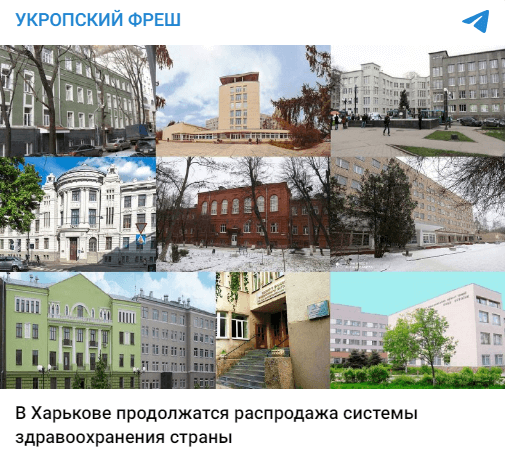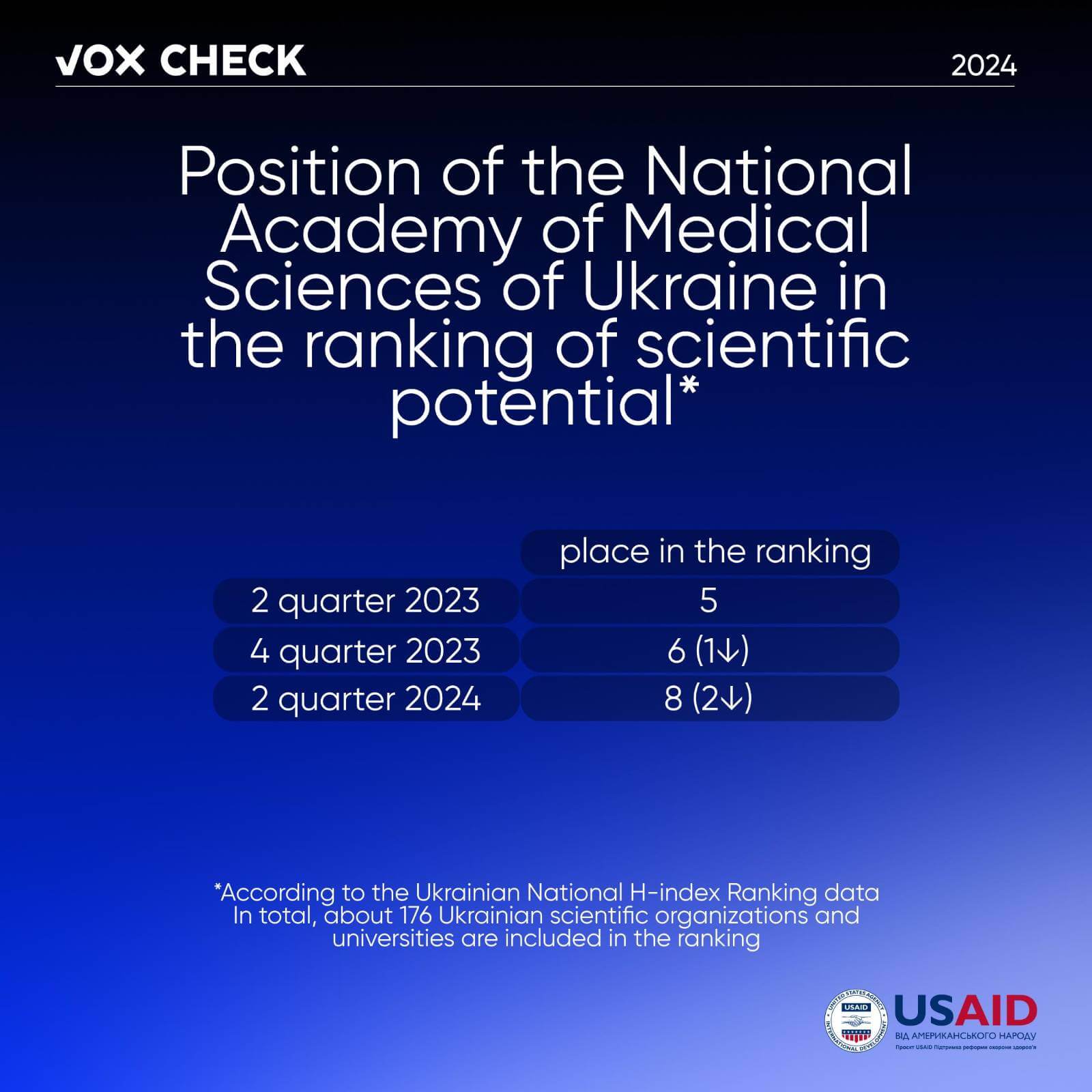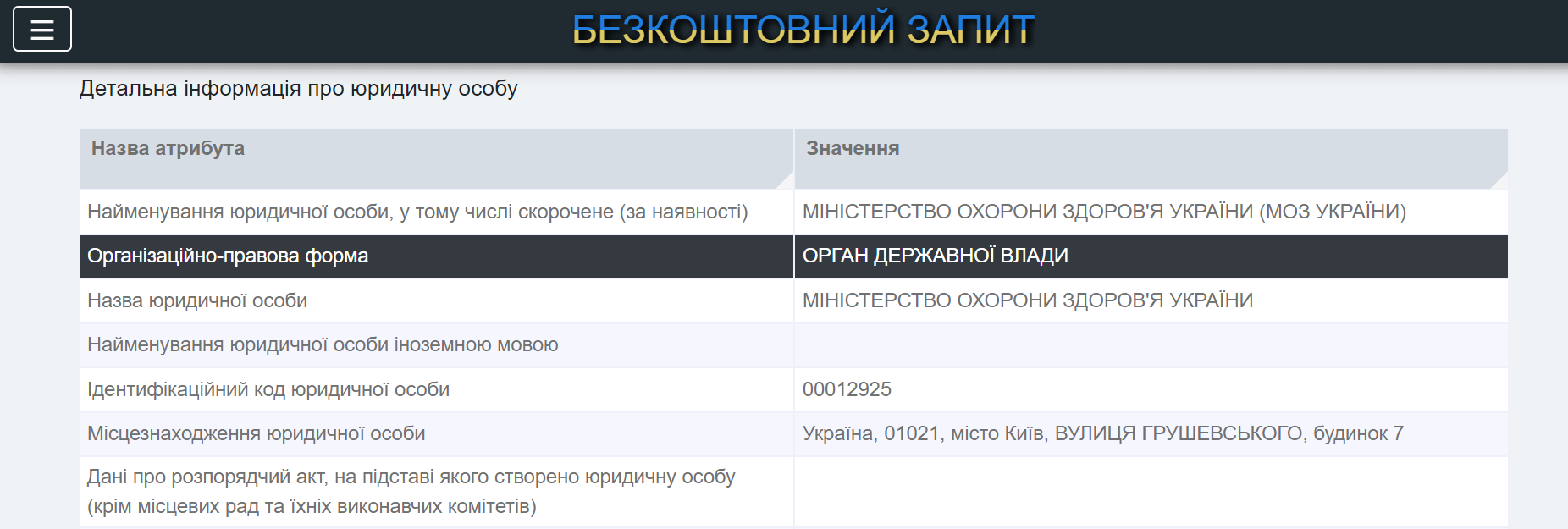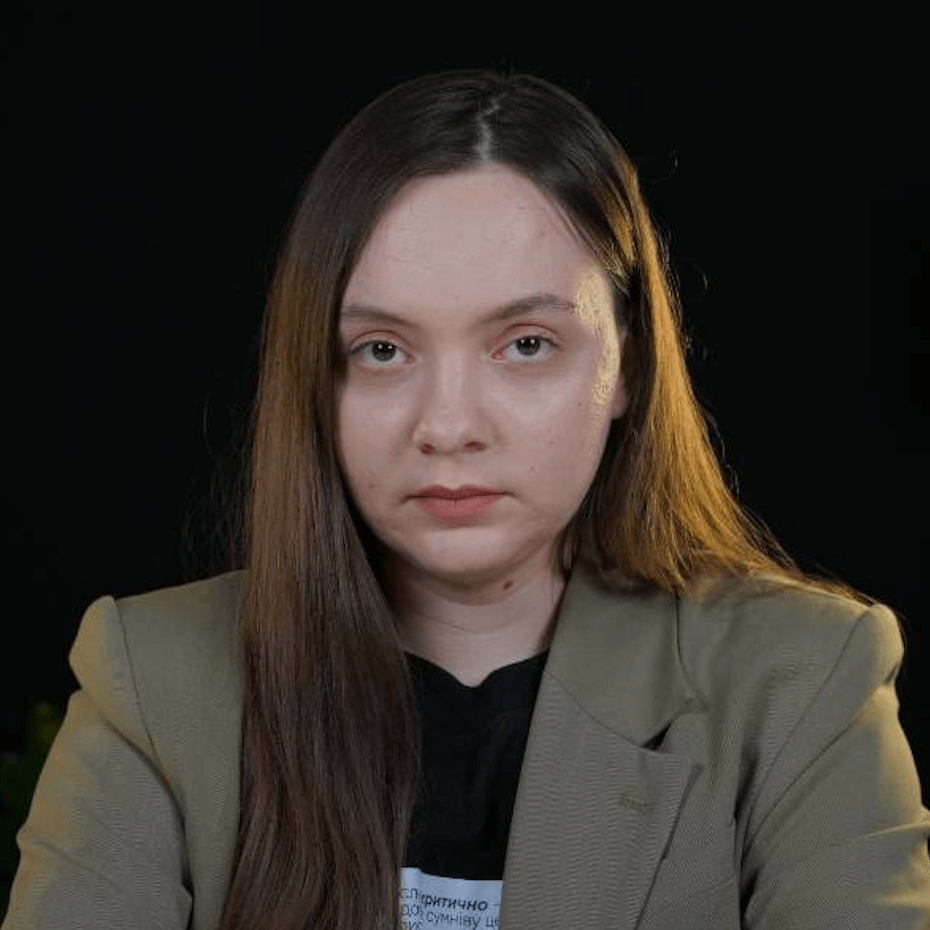Propagandists continue to promote the topic of “illegal privatization” of medical institutions. This time, it concerns the institutes of the National Academy of Medical Sciences of Ukraine in Kharkiv. Information has appeared online about the possibility of merging the institutes into a single hospital, which will be managed by the Ministry of Health of Ukraine. However, in the universe of propagandists, this means that “the institutes are being handed over to a private individual”.
With the support of the USAID Health Reform Support project, VoxCheck analyzes and refutes public health narratives spread in the information space of Ukraine, Belarus, and russia on a weekly basis.
Information is being spread online alleging that the Minister of Health of Ukraine, Viktor Liashko, has stated that all institutes of the Academy of Medical Sciences in Kharkiv will be liquidated, and a single university clinic of the Kharkiv National Medical University will be created on their basis, owned by a private individual. The sale was approved by the city mayor, Ihor Terekhov, although the privatization of state and municipal healthcare institutions is prohibited.
Screenshot of the post
What’s the reality?
We previously debunked a fake about the preparation of draft law No. 11071 in Ukraine, which would allow hospitals and clinics to be put up for sale. In reality, the draft law submitted on March 11, 2024, only proposes to provide the possibility of privatizing certain objects and property of medical institutions that have not been used for more than three years. As of mid-April 2024, the draft law is being processed in the Committee on Economic Development. Therefore, it hasn’t even passed the first reading, so its text could undergo significant changes, or the Verkhovna Rada may reject the document altogether.
This time, privatization is not mentioned either. The National Academy of Medical Sciences of Ukraine is a state scientific organization that includes 36 research institutions. The organization was founded in 1993 in Kyiv, and the institutions of the National Academy of Medical Sciences of Ukraine are located in various cities.
On the Facebook page of one of the Kharkiv institutions of the National Academy of Medical Sciences — the Institute of Microbiology and Immunology named after Mechnikov — we found a post discussing the possibility of merging the National Academy of Medical Sciences institutes in Kharkiv into a single university clinic at Kharkiv National Medical University. So, there is indeed a similar initiative from the minister regarding consolidation. However, there is no mention of any transfer of ownership to a private individual. The minister’s letter states that to create the hospital, the property complexes of the institutions will be transferred to the management of the Ministry of Health of Ukraine. We did not find any other public mentions of this issue or reactions to the proposal by the mayor of Kharkiv, Ihor Terekhov. Therefore, assumptions about his “approval of privatization” are unfounded.
Furthermore, the institute’s team is against consolidation because it may hinder maintaining the current scientific activity and fulfilling obligations under existing international agreements. In their decision, the institute’s scientists also do not mention the issue of privatization or the transfer of property to private individuals. Other institutes have not published their opinion on the proposal either.
The fact that the institutes of the National Academy of Medical Sciences regularly engage in scientific research is evidenced by the results of the Ukrainian National H-index Ranking. This ranking list includes scientific research organizations and the scholars within them across the country. It is compiled taking into account the Hirsch index in Scopus, Web of Science, as well as Google Scholar. As of the second quarter of 2024, the National Academy of Medical Sciences holds the 8th position in the ranking out of 176, thus being among the top 10 most productive scientific organizations in Ukraine.
The fakes claiming that Ukrainian government bodies are actually “private” individuals are part of Russian propaganda. According to current legislation, ministries and other central executive authorities are established, reorganized, and liquidated by the Cabinet of Ministers of Ukraine upon the Prime Minister’s submission. Thus, according to the corresponding provision, the Ministry of Health of Ukraine is the main body in the system of central executive authorities responsible for forming and implementing state policy in the field of healthcare.
Often, the presence of the code in the Unified State Register of Enterprises and Organizations of Ukraine is cited as an argument for the “private” nature of an organization. However, this register includes organizations of all ownership forms, not just private ones. For example, data on Ukrainian state institutions can be found in the official register of the Ministry of Justice, which indicates that the Ministry of Health of Ukraine is a state authority. The presence of a number assigned to an organization in the database does not mean that the organization is private.
Extract from the Unified State Register of Legal Entities, Individuals, and Public Associations
The scientific infrastructure also suffers constant losses due to Russian aggression. According to the calculations of the Kyiv School of Economics, the overall estimate of losses among scientific institutions of the National Academy of Medical Sciences of Ukraine amounts to $7.8 million (as of June 2023).
This information piece was produced with the assistance of the United States Agency for International Development (USAID), provided on behalf of the people of the United States of America. This article’s content, which does not necessarily reflect the views of USAID, the United States Government, is the sole responsibility of Deloitte Consulting under contract #72012118C00001.
Attention
The author doesn`t work for, consult to, own shares in or receive funding from any company or organization that would benefit from this article, and have no relevant affiliations





